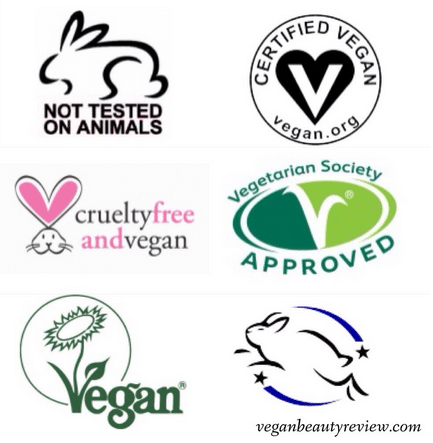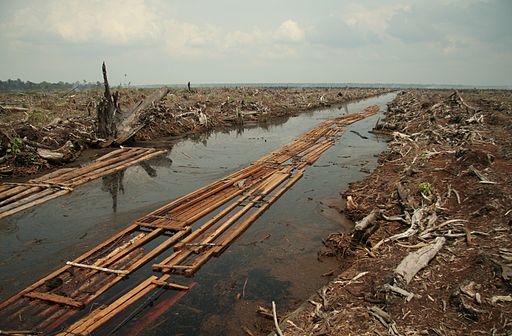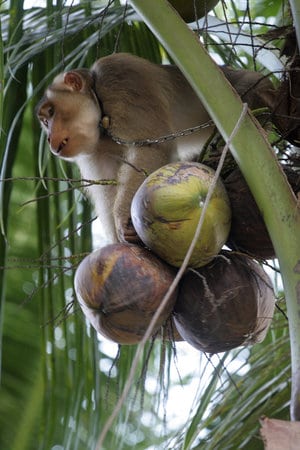
Is Vegan Soap Animal and Environmentally Friendly?
Published by Anne Altor on Feb 15th 2019
WHAT IS VEGAN SOAP? A LOOK BEHIND THE LABEL!

Symbols used on 'vegan' products
If you use handmade soap, you've probably seen "vegan" on more than one product label. Does that mean your vegan bar soap is environmentally and animal friendly? Well, maybe it does, but "vegan" can hide dirty secrets too…
Vegan implies the absence of animal products, including animal fat, milk, beeswax, honey, etc. So if a soap contains tallow, lard, goats milk or honey, it's not vegan. But what IS vegan soap?
Vegetarian Soap Contents
Vegetarian soap can be made with a huge variety of plant oils, and every oil has unique qualities that affect the soap. All soapmaking oils have ecological and social costs of production, processing, transportation and storage. It's important to consider these factors when choosing an ethical plant-based soap. For example, many soaps with the vegan label contain palm oil. Palm oil is the primary cause of deforestation in Indonesia and Malaysia, and its production destroys entire ecosystems and the animals within them. This destruction plays a huge role in climate change and biodiversity loss. The "Sustainable Palm Oil" label is misleading. Much so-called "sustainable" (RSPO-certified) palm oil does not live up to its claims. This "greenwashing" leads consumers to believe they're making a responsible choice and hides the fact that rainforests are being destroyed to produce the oil.
So, is palm oil "vegan"?

Destruction of a peat forest in Indonesia for a palm oil plantation. Image by Aidenvironment, Wikimedia Commons.
Coconut oil is often used in soap because it provides fantastic lather and good cleansing. Coconut trees grow very tall, and many growers use monkeys to pick the coconuts! Monkeys are great climbers and can easily navigate the canopy to twist off the coconuts. There are contrasting reports about how monkeys in the coconut industry are treated. Some companies appear to treat the monkeys well, and other reports show abuse.

Monkeys can collect up to 1,600 coconuts per day, where humans can collect an average of 80 per day. iStockphoto
Many human laborers in the coconut industry live in poverty despite the high demand for coconut products. Fair-Trade certification can help to help address these issues and support responsible social and environmental practices in the coconut industry.
So, with the complex issues surrounding body care products…
How to make vegan soap?
To be meaningfully vegan, the oils used in plant-based soap should support ecosystems and biodiversity as much as possible. At a minimum, choose oils that are not steeped in environmental and social conflict. Consider using quality byproduct oils (examples: rice bran oil, mango seed butter, apricot kernel oil) rather than primary food oils for some proportion of your vegan soap. The fact that they're secondary products doesn't mean they aren't quality oils, and using them may help keep primary food oils available for consumption.
For a more ethical lather, use Fair Trade-certified organic coconut oil rather than conventional coconut oil. Avoid palm oil and palm kernel oil. For shaving soaps, or to make the lather extra creamy, add a small amount of castor oil (5% is plenty).
Deciding what ingredients to use in our body care products involves more than understanding the properties an oil creates in soap and whether it's derived from a plant or animal. Our choices affect local and global ecosystems and communities. How are the oils produced? What are the human and ecological costs and benefits?
IN SUMMARY…
